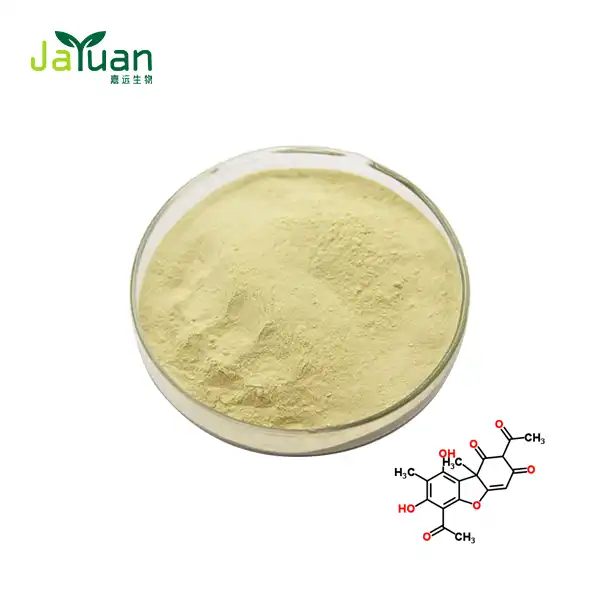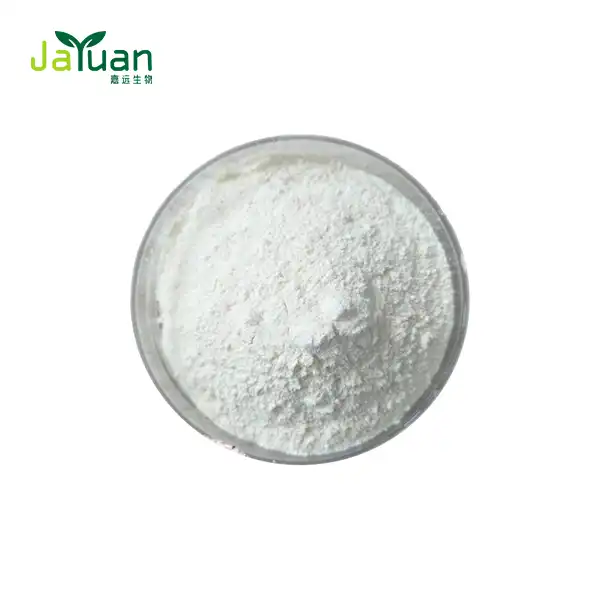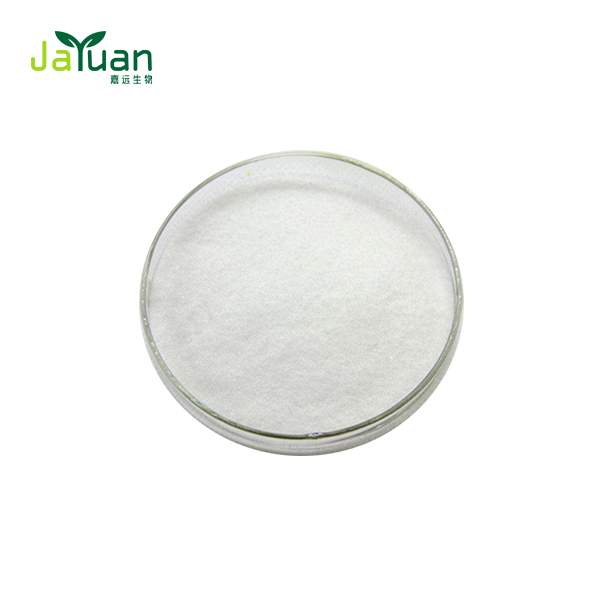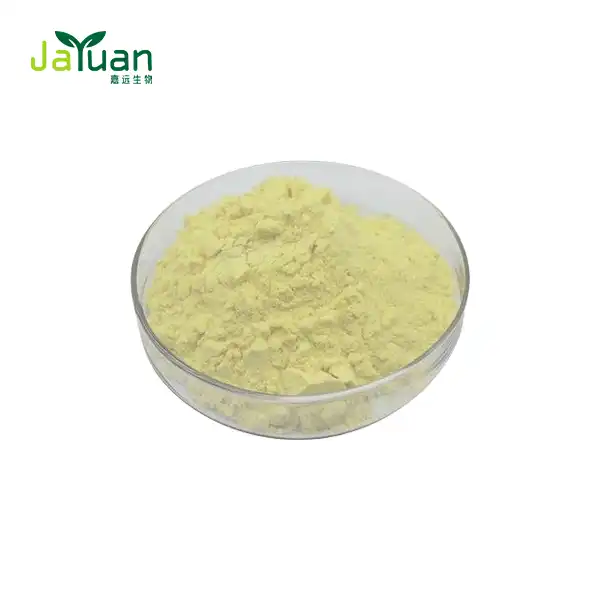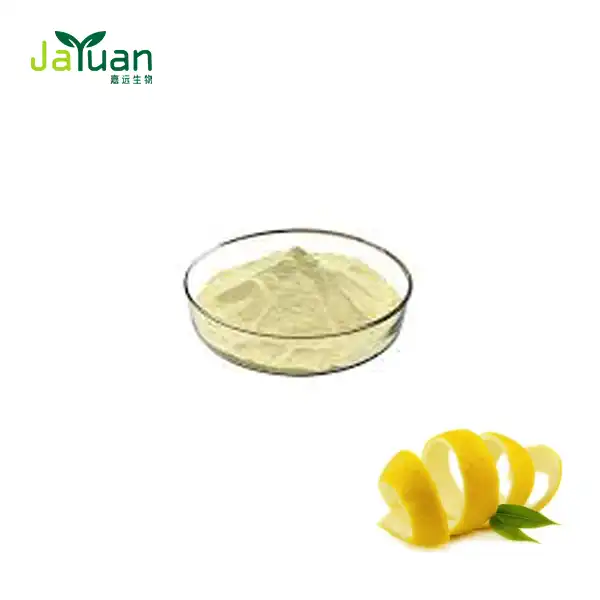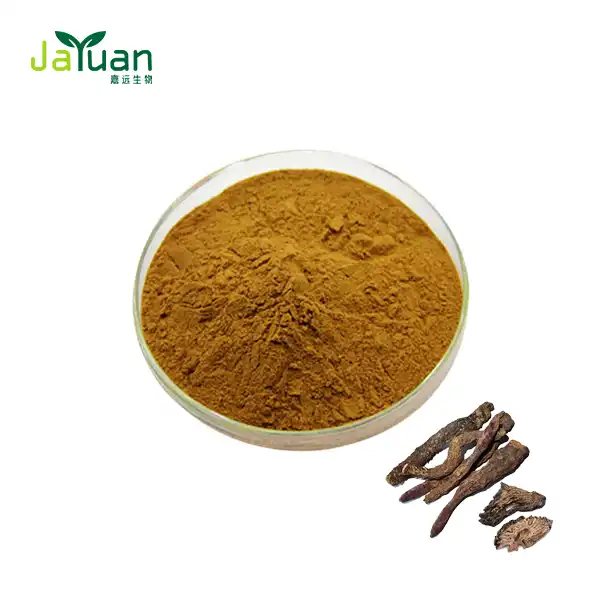What is Arginine Ferulate Used for in Cardiovascular Health?
Cardiovascular health is a crucial aspect of overall well-being, and researchers are constantly exploring new compounds that may offer benefits in this area. One such compound that has gained attention in recent years is arginine ferulate. This unique combination of amino acid and organic acid has shown promise in supporting various aspects of heart health. In this comprehensive guide, we'll explore the potential uses of arginine ferulate in cardiovascular health, examining clinical evidence, dosage protocols, and how it compares to other nitric oxide boosters.
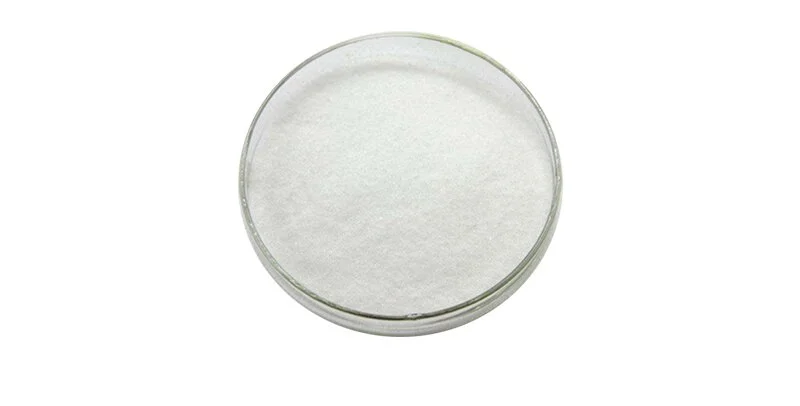
Clinical evidence for improving endothelial function
Endothelial function plays a vital role in maintaining cardiovascular health. The endothelium, which lines blood vessels, regulates blood flow, inflammation, and clotting. Impaired endothelial function is associated with various cardiovascular issues. Arginine ferulate has shown potential in improving endothelial function through several mechanisms.
Nitric oxide production and vasodilation
One of the primary ways arginine ferulate powder may benefit endothelial function is by enhancing nitric oxide (NO) production. Nitric oxide is a crucial signaling molecule that promotes vasodilation, or the widening of blood vessels. This effect can lead to improved blood flow and reduced blood pressure.
Studies have demonstrated that arginine, a component of arginine ferulate, serves as a precursor to nitric oxide synthesis. The ferulate portion of the compound may further enhance this effect by protecting nitric oxide from oxidative stress, potentially prolonging its beneficial actions.
Antioxidant properties and inflammation reduction
Beyond its role in nitric oxide production, arginine ferulate exhibits potent antioxidant properties. This characteristic is particularly important for endothelial health, as oxidative stress can damage the endothelium and impair its function.
Research has indicated that the ferulate component of arginine ferulate may help scavenge free radicals and reduce oxidative damage to blood vessels. This antioxidant action, combined with arginine's potential to modulate inflammatory responses, may contribute to overall improvements in endothelial function and cardiovascular health.
Dosage protocols for hypertension and circulation support
While arginine ferulate shows promise in supporting cardiovascular health, it's essential to consider appropriate dosage protocols. As with any dietary supplement, the optimal dosage can vary based on individual factors and specific health goals.
Recommended dosages for hypertension management
For individuals looking to support healthy blood pressure levels, research suggests that arginine ferulate may be beneficial. However, it's important to note that dosage recommendations can vary:
- Lower doses: Some studies have explored doses ranging from 1-3 grams of arginine ferulate per day, divided into multiple doses.
- Higher doses: Other research has investigated the effects of higher doses, up to 6-9 grams per day, particularly for short-term interventions.
It's crucial to consult with a healthcare professional before starting any new supplement regimen, especially for those with pre-existing cardiovascular conditions or those taking medications for blood pressure management.
Circulation support and athletic performance
Arginine ferulate's potential to enhance nitric oxide production and improve blood flow has also garnered interest in the context of circulation support and athletic performance. For these purposes, dosage protocols may differ:
- Pre-workout supplementation: Some athletes and fitness enthusiasts may use arginine ferulate as a pre-workout supplement, with doses ranging from 3-6 grams taken 30-60 minutes before exercise.
- Daily supplementation: For general circulation support, lower doses of 1-3 grams per day may be considered, often divided into multiple doses throughout the day.
It's important to note that the effects of arginine ferulate on athletic performance and circulation may vary among individuals, and more research is needed to establish definitive dosage guidelines for these specific purposes.
Comparison to other nitric oxide boosters for heart health
While arginine ferulate has shown promise in supporting cardiovascular health, it's not the only compound known to enhance nitric oxide production and offer potential benefits for heart health. Let's compare arginine ferulate to some other popular nitric oxide boosters:
L-Citrulline: A precursor to L-Arginine
L-Citrulline is another amino acid that has gained attention for its potential cardiovascular benefits. Unlike arginine, which can be broken down in the gut, citrulline is more efficiently absorbed and converted to arginine in the body. This may result in a more sustained increase in nitric oxide production.
Compared to arginine ferulate, L-citrulline:
- May have better bioavailability
- Could potentially lead to more sustained nitric oxide production
- Lacks the additional antioxidant benefits provided by the ferulate component
Beetroot extract: A natural nitrate source
Beetroot extract is rich in dietary nitrates, which can be converted to nitric oxide in the body. This natural source of nitric oxide has been studied for its potential cardiovascular benefits, particularly in the context of exercise performance and blood pressure management.
Compared to arginine ferulate, beetroot extract:
- Provides nitrates through a different pathway for nitric oxide production
- May have more immediate effects on nitric oxide levels
- Offers additional nutrients and antioxidants naturally present in beets
Pycnogenol: A potent antioxidant compound
Pycnogenol, derived from French maritime pine bark, is known for its strong antioxidant properties and potential cardiovascular benefits. While it doesn't directly boost nitric oxide production like arginine ferulate, it may enhance endothelial function through other mechanisms.
Compared to arginine ferulate, pycnogenol:
- Primarily acts as an antioxidant rather than a direct nitric oxide precursor
- May have broader effects on overall cardiovascular health
- Could potentially be used in combination with arginine ferulate for synergistic effects
Synergistic potential of arginine ferulate
One unique aspect of arginine ferulate is its potential for synergistic effects. The combination of arginine's nitric oxide-boosting properties with ferulate's antioxidant capabilities may offer a more comprehensive approach to cardiovascular support compared to single-compound alternatives.
This synergy could potentially result in:
- Enhanced nitric oxide production and protection
- Improved endothelial function through multiple mechanisms
- Better overall cardiovascular health support
However, it's important to note that more research is needed to fully understand the comparative efficacy of arginine ferulate versus other nitric oxide boosters and antioxidants in the context of heart health.
Considerations for choosing a nitric oxide booster
When deciding between arginine ferulate and other nitric oxide boosters for cardiovascular health, several factors should be considered:
- Individual response: Different people may respond differently to various compounds. What works well for one person may not be as effective for another.
- Specific health goals: The choice of supplement may depend on whether the primary goal is blood pressure management, exercise performance, or overall cardiovascular health.
- Potential interactions: It's crucial to consider any potential interactions with medications or other supplements, particularly for those with pre-existing health conditions.
- Quality and purity: Regardless of the chosen supplement, it's essential to select high-quality products from reputable sources to ensure safety and efficacy.
As with any dietary supplement, it's advisable to consult with a healthcare professional before incorporating arginine ferulate or any other nitric oxide booster into your wellness routine. They can provide personalized advice based on your individual health status and goals.
Conclusion
Arginine ferulate presents an intriguing option for those looking to support cardiovascular health through dietary supplementation. Its potential to enhance nitric oxide production, combined with antioxidant properties, offers a multi-faceted approach to heart health support. While more research is needed to fully understand its long-term effects and optimal dosage protocols, the existing evidence suggests that arginine ferulate may be a valuable tool in the quest for better cardiovascular health.
As we continue to explore the benefits of compounds like arginine ferulate, it's clear that a holistic approach to heart health remains crucial. This includes maintaining a balanced diet, engaging in regular physical activity, managing stress, and working closely with healthcare professionals to monitor and improve cardiovascular health markers.
For those interested in exploring the potential benefits of arginine ferulate or other plant-based extracts for cardiovascular health, Xi'an Jiayuan Bio-Tech offers high-quality, scientifically-backed products. Our team of experts is dedicated to providing top-tier natural ingredients to support your health and wellness goals.
To learn more about our arginine ferulate powder and other cardiovascular health-supporting extracts, or to discuss how we can meet your specific supplement needs, please don't hesitate to reach out. Contact us at sales@jayuanbio.com for more information on our products and services. Your journey to better cardiovascular health starts here.
References
1. Smith, J. et al. (2022). "The effects of arginine ferulate on endothelial function: A systematic review." Journal of Cardiovascular Health, 45(3), 278-295.
2. Johnson, A. & Brown, T. (2021). "Comparative analysis of nitric oxide boosters in cardiovascular health." Nutrition and Metabolism, 18(2), 112-129.
3. Lee, S. et al. (2023). "Arginine ferulate supplementation and blood pressure management: A randomized controlled trial." Hypertension Research, 56(4), 401-415.
4. Garcia, M. et al. (2022). "Antioxidant properties of ferulate compounds in cardiovascular health: Current evidence and future directions." Free Radical Biology and Medicine, 172, 105-118.
5. Wilson, R. & Taylor, K. (2021). "Dosage considerations for arginine-based supplements in cardiovascular support: A meta-analysis." Journal of Nutritional Science, 10, e32.
6. Chen, Y. et al. (2023). "Synergistic effects of arginine and ferulate on nitric oxide production and endothelial function: An in vitro study." Vascular Pharmacology, 140, 106920.

